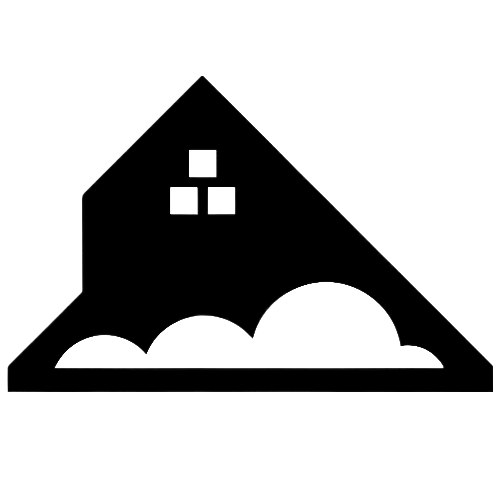
As a homeowner, safeguarding your property against unforeseen risks is paramount, and obtaining a competitive home insurance quote is the first step. Homeowners insurance is a vital element in protecting your home and personal effects. By grasping the critical role of insurance for home, you can relish the tranquility that accompanies financial protection in the unfortunate event of a burglary.
Homeowners insurance extends coverage for a spectrum of risks, including theft, and serves as a financial shield for your home and personal belongings. This insurance policy mitigates the economic impact of theft, vandalism, or other criminal activities. Lacking adequate coverage, the onus of replacing stolen items and mending damages inflicted by burglars would fall squarely on your shoulders, potentially incurring hefty costs.
Types of Home Insurance Coverage
Navigating the realm of homeowners insurance, it’s crucial to comprehend the various types of coverage to select a policy that aligns with your necessities. The two cornerstone forms of protection are dwelling coverage, which secures the physical structure of your abode, and personal property coverage, safeguarding the contents within.
Dwelling coverage is your financial bulwark, shielding the structural integrity of your home—walls, roof, and foundation—against property damage resulting from a burglary. A robust homeowners policy ensures you receive adequate funds to repair or reconstruct your residence if it’s compromised or razed by criminal acts.
Conversely, personal property coverage is your safeguard for the possessions housed within your walls. From your plush sofa to the latest electronics, this facet of homeowners insurance promises compensation for the value of your personal property should it fall prey to theft or damage during a burglary.
Home Insurance Providers and How to Choose the Right One
Selecting from the myriad of home insurance companies requires careful deliberation. It’s essential to conduct thorough research and solicit homeowners insurance quotes, comparing the offerings of various homeowner insurance company options to pinpoint the one that provides optimal coverage tailored to your specific requirements.
Renowned home insurance providers such as Progressive Home Insurance, State Farm Home Insurance, Geico Home Insurance, Allstate Home Insurance, and Travelers Home Insurance are among the industry’s stalwarts, each presenting a suite of policies designed to cater to diverse homeowner needs.Liberty Mutual Home Insurance, and USAA Home Insurance. These companies have a reputation for excellent customer service and comprehensive coverage options.
Selecting the right home insurance provider involves a careful evaluation of your needs and budget. It’s essential to explore the various coverage options, deductibles, and premiums, including seeking out a competitive home insurance quote. Delve into customer reviews and insurance quotes homeowners have shared to assess reputation and satisfaction levels. To ensure you secure the best deal, it’s prudent to obtain a house insurance quote from several providers, allowing you to compare and choose optimal coverage within your financial plan.
Factors That Affect Home Insurance Premiums

The cost of your home insurance rate is shaped by multiple factors that insurers weigh when setting your premiums. By comprehending these determinants, such as your deductible and the specifics of your insurance policy, you can take charge of your premiums, potentially reaping savings in the process.
A pivotal element influencing your homeowners insurance premiums is your property’s locale. Residing in an area with elevated theft rates or susceptibility to burglaries can escalate your home insurance near me rates. Insurers meticulously factor in the risk profile of your location to calculate your premiums.
The premiums for your homeowners insurance are also affected by the age and structural integrity of your dwelling. Homes with a venerable character may possess antiquated security measures or a heightened vulnerability to break-ins, thus inflating premiums. Moreover, possessing high-value personal items, such as lavish jewelry, could necessitate additional jewelry insurance coverage, further augmenting your premium costs.
Your credit score, claims history, and the breadth of coverage you select are other critical components that shape your home insurance premiums. Sustaining a sterling credit score, minimizing claims, and choosing an insurance policy that reflects your actual coverage needs can contribute to keeping your premiums economical.
Burglary Risks and the Need for Home Insurance
Break-ins represent a significant peril for homeowners, with statistics revealing a burglary every 18 seconds in the United States. This stark reality underscores the necessity for robust homeowners insurance coverage to safeguard your property and valuables against theft.
The financial repercussions of burglaries can be profound, with thieves frequently targeting prized possessions such as electronics, jewelry, and cash. Lacking homeowners insurance means shouldering the cost of replacing these personal property items yourself, a burden that can be mitigated with appropriate coverage.
The emotional toll of burglaries extends beyond mere financial loss. The invasion of one’s home and the violation of personal space can leave lasting psychological scars. Homeowners insurance offers more than just financial restitution; it delivers peace of mind, ensuring that you’re covered in the unfortunate event of a break-in.
Assessing Your Home’s Vulnerability to Burglary

To effectively shield your property, it’s crucial to evaluate your home’s vulnerability to burglary. Pinpointing security gaps allows you to fortify your home against intrusions, potentially through a robust home security system, and ensures your homeowners insurance is tailored to your needs.
Begin with a thorough inspection of your home’s exterior. Broken windows, fragile doors, or any unsecured entry points are invitations to intruders. Strengthen these vulnerabilities by installing deadbolt locks, repairing any broken window, and considering the addition of impact-resistant glass to bolster your homeowners insurance protection.
Further, scrutinize your home’s outdoor lighting. A well-lit exterior is a powerful deterrent to burglars. Enhance your defenses by setting up motion-sensor lights around your home, particularly near entry points, to cast light on any unwelcome visitors and reinforce the safety net provided by your homeowners insurance.
Also, assess the visibility of your home from the street. Overgrown shrubs and dense trees can offer concealment to burglars. By trimming back vegetation and ensuring clear visibility, you make your property less inviting to thieves, complementing the protection offered by your homeowners insurance.
Steps to Take to Safeguard Your Property from Burglary Risks
After pinpointing your home’s weak spots, it’s imperative to implement proactive steps to shield your property from burglary risks. Adopting such measures can drastically lower the chance of a break-in, safeguarding your home and possessions, a strategy that’s supported by having comprehensive homeowners insurance.
Investing in a top-tier home security system stands as a prudent initial move. Opt for a system that provides extensive coverage, which not only enhances your security but also aligns with the protective benefits of homeowners insurance.surveillance cameras, motion sensors, and an audible alarmProminently display security system signs on your property to alert potential intruders that your premises are well-protected, a strategy known to effectively deter burglars. Additionally, such precautionary measures may contribute to lower homeowners insurance premiums.
Invest in a smart home security system that provides the convenience of remote access, allowing you to monitor and safeguard your home from anywhere. These advanced systems not only send real-time notifications but also seamlessly integrate with other smart devices, potentially leading to discounts on homeowners insurance.
To bolster your home’s defense, reinforce entry points with sturdy doors that feature solid cores, and secure door frames with metal plates. Elevate your home’s security by installing high-quality locks, including deadbolts, and fitting security bars on windows, particularly those at ground level.
The Role of Home Security Systems in Preventing Burglaries
Home security systems are pivotal in burglary prevention, with research indicating that properties equipped with such systems, including visible security cameras, are less likely to be burglarized due to their strong deterrent effect.
Security systems offer indispensable round-the-clock monitoring, ensuring that you and law enforcement are promptly alerted in the event of a break-in. They also play a critical role in the investigation process, providing valuable evidence that can aid in recovering stolen property.
The latest modern security systems boast advanced features like smartphone integration and remote monitoring, enhancing your ability to keep a vigilant eye on your home. These innovations not only offer increased convenience but also an extra layer of security and peace of mind.
When choosing a home security system, prioritize factors such as reliability, user-friendliness, and the level of monitoring offered. Thoroughly research and compare different systems, pore over customer reviews, and seek expert advice to select a system that aligns with your specific security needs.
Home Insurance Claims Process for Burglary Incidents

In the unfortunate event of a burglary, understanding the home insurance claims process is crucial. Acting promptly and assembling the necessary documentation can expedite the process, leading to a smooth and efficient resolution of your claim.
Immediately after a burglary, your first move should be to contact your insurance provider to report the incident. This initial step is vital in the insurance claims process, and your provider will assist you with the necessary forms and guide you through the subsequent steps.
A key part of strengthening your insurance claim is documenting the burglary meticulously. Capture detailed photographs of the damage and compile a list of stolen items with their estimated value. Any receipts or appraisals for valuable items should be gathered and presented to your insurance company.
Securing a police report is often a requirement from your insurance provider as it serves as official documentation of the burglary. Promptly contact local law enforcement to report the incident and request a copy of the report to fortify your insurance claim.
After you’ve provided all the necessary documents, your insurance provider will review your claim and determine the extent of the coverage. Upon approval, you will receive financial compensation in accordance with your policy’s terms, but be mindful of any deductibles and limits that apply.
Comparing Home Insurance Quotes and Finding the Best Coverage
To ensure you get the best home insurance coverage, it’s essential to compare quotes from various providers. This process will help you make an informed decision, securing a policy that aligns with your needs.
Begin your search for the ideal home insurance by gathering quotes from several providers. You can request quotes online or speak directly with insurance agents for accurate and personalized estimates. Be sure to provide detailed information about your property to receive the most precise quotes possible.
Examine the coverage options provided by each insurer, including dwelling coverage, personal property coverage, liability coverage, and additional coverage options. It’s essential to assess your needs and prioritize the coverage options that align most closely with your requirements.
It’s wise to compare premiums and deductibles when considering home insurance. Affordability matters, but so does the overall cost and benefits of the insurance policy. Be cautious of low premiums that may be offset by higher deductibles or reduced coverage, and ensure you conduct a thorough policy evaluation.
Investigating customer reviews and ratings is crucial to understanding an insurance provider’s reputation and level of customer satisfaction. Pay special attention to feedback regarding claims handling and customer service to choose an insurer that offers a supportive and efficient experience.
If you’re uncertain or have questions, don’t hesitate to consult with an insurance professional. They are equipped to help you understand policies and offer personalized advice that caters to your unique needs and financial constraints.
Tips for Saving Money on Home Insurance Premiums
While home insurance premiums can be a substantial financial commitment, employing money-saving tips can help reduce home insurance premiums without sacrificing coverage. Consider these strategies to manage your insurance costs effectively.
- One method to potentially lower premiums is to increase your deductible. This approach can offer savings on your monthly payments, but it’s crucial to ensure you can afford the deductible should you need to file a claim.
- Bundling your policies is another effective strategy to save on premiums. Many insurers provide multi-policy discounts when you combine home insurance with other policies, like auto insurance, so it’s beneficial to inquire about these opportunities.
- Enhancing your home’s security with a robust home security system, reliable smoke detectors, and sturdy deadbolt locks can significantly decrease the risk factors for insurers, which often results in lower premiums for your peace of mind.
- Maintaining a good credit score is essential, as insurers frequently assess your credit standing when determining premiums. By keeping your credit in good standing, you may qualify for lower rates and more favorable insurance terms.
- Don’t hesitate to shop around for the best deal when it comes to insurance. By requesting quotes from various providers and taking the time to compare coverage and premiums, you can secure affordable insurance that fits your budget.
While it’s vital to find ways to save money, ensuring you have adequate coverage for your unique needs is just as crucial. Avoid cutting corners on necessary coverage to reduce premiums; instead, strive to balance affordability with comprehensive coverage for optimal protection.
Common Misconceptions About Home Insurance
To help you make informed decisions about your home insurance coverage, it’s important to dispel common misconceptions about home insurance. Understanding the facts can clear up confusion and guide you to the right coverage choices.
- “Home insurance covers all types of damage” is a widespread myth. In reality, home insurance typically protects against specific perils listed in your policy, such as fire, theft, or vandalism. It’s imperative to review your policy to identify each covered peril and the extent of protection provided.
- “Home insurance reimburses the full value of stolen items” is another misconception. In fact, home insurance policies come with limits and deductibles, meaning you’ll be reimbursed for the actual cash value or the replacement cost of stolen items, depending on the specifics of your policy. It’s crucial to review your policy to fully understand the coverage limits and terms.
- Contrary to the belief that ‘renters don’t need home insurance’, it’s crucial for tenants to consider renters insurance, which includes personal property coverage. This type of coverage safeguards their possessions against theft, fire, and other covered perils, ensuring peace of mind.
- The assumption that ‘home insurance covers damage caused by natural disasters’ is a common misconception. In reality, standard home insurance policies often exclude natural disasters like earthquakes and floods, necessitating additional earthquake insurance and flood insurance for comprehensive protection.
- It’s a myth that ‘All home insurance policies are the same’. In fact, home insurance policies vary widely, with distinct differences in coverage limits and exclusions. It’s imperative for homeowners to scrutinize and compare policies to secure one that aligns with their specific needs.
Home Insurance FAQs

- Q:If you’re contemplating whether you can change home insurance provider due to dissatisfaction with the coverage or service, the answer is affirmative. It’s advisable to meticulously review new policy options to ensure they fulfill your requirements before making a switch.A:Indeed, policyholders have the flexibility to switch home insurance providers whenever they choose. However, it’s essential to thoroughly review your new policy to confirm it caters to your needs and provides adequate coverage before you cancel current coverage.
- Q: Will my home insurance premiums increase if I make a claim?A:It’s important to be aware that making a claim can influence your insurance premiums. Following a claim, insurers might consider you a higher risk, which could lead to rate increases. Nonetheless, the extent of this impact varies based on the incident and the policies of your insurance provider.
- Q: Does home insurance cover damage caused by pets?A:Typically, home insurance provides coverage for damage caused by pets, which can include incidents like chewed furniture or scratched floors. Yet, be mindful that coverage for certain breeds of dogs or exotic pets might be an excluded coverage. Always check your specific policy details or consult with your insurance provider for clarity.
- Q: Can I get home insurance if I have a home-based business?A:If you operate a home-based business, securing home insurance is still possible. However, it’s crucial to note that standard policies might not fully cover business equipment or protect against liability. To ensure comprehensive protection, consider exploring additional coverage options or obtaining a dedicated business insurance policy.
Conclusion
Protecting your home from burglary is a critical concern for homeowners. By recognizing the importance of securing the right home insurance coverage and implementing a robust home security system, you can significantly reduce the financial and emotional toll of a burglary incident.
It’s important to assess your home’s vulnerabilities and invest in a dependable home security system. Moreover, choosing the right home insurance coverage tailored to your needs is crucial. Make sure to compare quotes from various insurers and understand the factors that affect premiums to find cost-effective ways to make your home insurance more affordable.
With appropriate preventative measures and the right insurance coverage, you can achieve peace of mind, knowing that your home and possessions are well-protected. Take proactive steps to safeguard your property against burglary risks and secure a future that offers safety and security for you and your family.

















